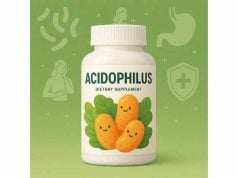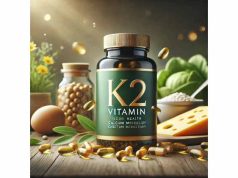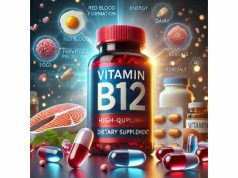
Alpha-GPC (alpha-glycerylphosphorylcholine) is a choline-based compound well-known for its positive impact on cognitive function and neurological vitality. Emerging conversations now highlight how Alpha-GPC may also support various aspects of eye health, including retinal function and visual clarity. By aiding neurotransmitter production, improving blood flow, and assisting in cellular membrane maintenance, Alpha-GPC could help bolster the physiological processes essential for sharp eyesight. In this comprehensive guide, we delve into what Alpha-GPC is, how it might enhance vision, practical tips for usage, and relevant research findings to help you incorporate it into a holistic approach for better eye health.
Table of Contents
- What Is Alpha-GPC Exactly?
- Alpha-GPC’s Potential Pathways for Clearer Vision
- Principal Gains of Alpha-GPC for Eye Well-Being
- Optimal Strategies to Use Alpha-GPC for Eye Enhancement
- Studies and Observations: Examining Alpha-GPC Research
- Frequently Asked Questions
- References and Sources
What Is Alpha-GPC Exactly?
Alpha-GPC is a naturally occurring phospholipid derivative that contains a choline backbone, making it both water-soluble and easily absorbed. The human body produces small amounts of Alpha-GPC, but higher concentrations often come from dietary sources or supplements. Although it has gained recognition primarily as a nootropic (cognitive enhancer), its broader physiological effects—including potential ocular benefits—are drawing growing attention.
Chemical Composition and Function
- Phospholipid Structure: As a glycerophospholipid, Alpha-GPC is essential for building healthy cell membranes, including neurons and possibly some retinal cells.
- Choline Donor: Once ingested, Alpha-GPC releases free choline, which can be converted into acetylcholine, a key neurotransmitter for nerve signaling.
- Crossing the Blood-Brain Barrier: Alpha-GPC is known for its high bioavailability, meaning it efficiently reaches central nervous system tissues.
Primary Roles in the Body
- Cognitive Support: Known to boost acetylcholine levels, which may enhance focus, memory, and mental clarity.
- Neuroprotection: By supporting neuronal membrane integrity, Alpha-GPC may help protect nerve cells from degenerative processes.
- Cellular Metabolism: The presence of glycerophosphate aids in ATP production, possibly influencing cellular energy availability for high-energy organs like the brain and eyes.
Sources and Forms
- Dietary: Naturally occurs in trace amounts in organ meats, dairy, and certain wheat-derived products.
- Supplements: Often sold in capsule or powder form, providing standardized doses ranging from 150 mg to 600 mg or more per serving.
Relevance to Eye Function
Though the connection may seem indirect, the central role of choline in nerve signaling and cellular health can extend to ocular tissues. If your eyes and associated nerves (optic nerve, for instance) benefit from improved membrane stability and neurotransmitter support, Alpha-GPC may indeed help with aspects of visual performance. Understanding these fundamentals sets the stage for exploring how Alpha-GPC Improves Vision.
Alpha-GPC’s Potential Pathways for Clearer Vision
Talking about “Alpha-GPC for Vision Improvement” involves understanding how it influences nervous system function, blood flow, and cell membrane health in structures critical to sight. Let’s break down some of these mechanisms:
1. Boosting Acetylcholine for Ocular Nerves
Acetylcholine is a neurotransmitter integral to various autonomic and sensory processes. In the context of vision:
- Pupil Control: Acetylcholine helps regulate constriction and dilation, affecting how much light enters the eye.
- Retinal Signaling: Some retinal cells use cholinergic signaling. Enhanced acetylcholine availability can theoretically refine visual signal conduction.
2. Enhancing Neuronal Membrane Stability
Healthy neuronal and photoreceptor membranes rely on phospholipids for structural integrity:
- Retinal Photoreceptors: Adequate membrane composition ensures these cells handle light stimulus effectively.
- Optic Nerve Fibers: Myelin sheaths could potentially benefit from phospholipid components, leading to smoother conduction of visual signals to the brain.
3. Possible Support for Blood Circulation
Though data is emerging, Alpha-GPC has been associated with improved cerebral blood flow in certain studies:
- Ocular Perfusion: If similar effects extend to ocular vessels, the retina might receive enhanced oxygen and nutrient delivery.
- Vision Endurance: Better blood flow can reduce eye fatigue during lengthy tasks like reading or screen use.
4. Fighting Oxidative Stress and Aging
Eyes are highly susceptible to oxidative damage, especially the lens and retina:
- Cellular Energy: Alpha-GPC’s glycerophosphate portion helps in ATP generation, boosting cellular resilience.
- Neuroprotective Influence: By stabilizing cell membranes, alpha-GPC may help neutralize some of the degenerative pathways tied to aging eyes, such as those leading to macular degeneration or cataract formation.
5. Maintaining Tear Film and Surface Comfort
Dry eye issues often tie back to compromised nerve signals in the lacrimal glands or ocular surface:
- Autonomic Nervous System: If cholinergic function is suboptimal, tear production may suffer. A modest improvement in parasympathetic outflow (which uses acetylcholine) could help regulate tear secretion.
- Corneal Nerve Health: Enhanced membrane integrity might support corneal nerve endings crucial for tear reflexes.
6. Alleviating Eye Strain in Digital Environments
Using computers or mobile devices for extended periods can trigger visual fatigue. The potential synergy of increased acetylcholine levels and neuronal energy from Alpha-GPC:
- Mitigates Eye Fatigue: Possibly supports ciliary muscle function and lens accommodation, though direct evidence is still evolving.
- Enhances Focus: By supporting mental clarity, it may indirectly help the user manage screen tasks more comfortably.
7. Synergy with Other Ocular Nutrients
Alpha-GPC can complement vitamins A, C, E, and minerals like zinc or lutein/zeaxanthin:
- Coordinated Eye Support: While those nutrients provide direct antioxidant or structural help, Alpha-GPC fosters optimal nerve conduction and membrane composition, creating a more holistic protection.
Though more research is needed to solidify these pathways, the theoretical links between alpha-GPC’s cholinergic, neuroprotective, and blood flow benefits create a compelling case for its role in promoting sharper vision and overall ocular wellness.
Principal Gains of Alpha-GPC for Eye Well-Being
Given its potential impacts on neurotransmission and cellular health, Alpha-GPC could offer several “Alpha-GPC Vision Benefits.” Here are the chief ways it may help your eyes in day-to-day life:
1. Increased Clarity and Focus
By supporting acetylcholine production, Alpha-GPC:
- Strengthens nerve signal efficiency from the retina to the visual cortex
- May boost the eye’s ability to adapt focus between near and distant objects, especially for those whose occupation involves rapid focus changes
2. Reduced Eye Fatigue and Strain
Prolonged reading, gaming, or computer tasks often lead to dryness, blurred vision, and headaches:
- Cellular Energy: Extra phospholipid availability can fortify ocular muscle cells and nerves.
- Better Cognitive Stamina: Users report feeling less mentally fatigued, which can translate to lower eye strain.
3. Potential Protective Effects Against Age-Related Changes
Though not a cure, Alpha-GPC might:
- Slow or moderate retinal degeneration by maintaining healthy photoreceptor membranes
- Help preserve lens clarity by minimizing some aspects of oxidative and structural stress
4. Improved Tear Film Quality
If alpha-GPC influences parasympathetic outflow:
- Support for tear secretion can result in fewer dryness episodes
- Eye surface lubrication fosters comfort, especially when you’re wearing contact lenses or working in air-conditioned rooms
5. Enhanced Night or Low-Light Vision
Neurotransmitter deficits sometimes hamper adaptation to dim conditions:
- Additional choline could refine neural responses in rods (low-light photoreceptors)
- Possible synergy with vitamins A and B2, known for improving night vision
6. Better Stress Tolerance
High mental stress or fatigue can negatively affect ocular performance:
- Cognitive resilience from alpha-GPC may indirectly ease tension in the ciliary muscles, lowering risk of tension headaches or ocular discomfort
7. Facilitated Recovery from Eye-Intensive Tasks
Whether it’s working at a microscope, reading fine prints, or marathon gaming:
- Muscle coordination in the eyes (involving extraocular muscles) might remain more robust with stable nerve conduction
- Relief and faster cooldown after intense visual sessions, possibly reducing persistent blurred vision afterward
While results vary and alpha-GPC is not a stand-alone solution for severe ocular ailments, these potential perks underscore its versatility in complementing a broader eye care regimen.
Optimal Strategies to Use Alpha-GPC for Eye Enhancement
Knowing the potential “Alpha-GPC for Eye Health” benefits is one thing; integrating it effectively into your routine is another. The following tips can help optimize how you use alpha-GPC to support vision.
1. Selecting the Right Supplement
- Formulations: Alpha-GPC typically comes in capsules or powder with standardized concentrations (often 50%, 85%, or 99% alpha-GPC).
- Purity and Quality: Seek third-party testing to ensure minimal contaminants and accurate labeling.
- Combined Supplements: Some “nootropic” or eye-focused formulations blend alpha-GPC with other nutrients like lutein, zeaxanthin, or B vitamins.
2. Recommended Dosages
Though there’s no universal daily value for alpha-GPC, typical usage ranges:
- Mild Eye Support: ~150–300 mg/day in one or two doses.
- Cognitive/Intensive: ~300–600 mg/day, or even higher, under medical guidance.
If you’re new to alpha-GPC, start at the lower end to assess tolerance, then adjust as needed.
3. Timing and Pairing with Meals
Alpha-GPC can be taken with or without food:
- Empty Stomach: Some prefer morning ingestion for an immediate mental energy boost.
- With Meals: This can reduce GI discomfort for sensitive individuals.
- Stacking: Consider combining alpha-GPC with antioxidants (vitamins C, E) or fish oil for synergy in nerve cell maintenance.
4. Complementary Nutrients and Habits
For robust visual gains, alpha-GPC aligns well with:
- Carotenoids (lutein, zeaxanthin): Protect the macula from blue light damage.
- Omega-3 Fatty Acids: Essential for retina cell membrane fluidity.
- Eye-Friendly Vitamins: A, B-complex, C, D, E.
- Lifestyle: Regular breaks from screens, balanced hydration, consistent sleep, and wearing UV-protective sunglasses.
5. Potential Side Effects and Safety
Alpha-GPC is generally considered safe. However:
- Mild GI issues like nausea or heartburn can occur at higher doses.
- Headaches or jitteriness sometimes arise if combined with other strong nootropics or stimulants.
- Interactions: If you’re taking medications for dementia, neurological conditions, or have blood pressure concerns, consult with a healthcare provider.
6. Tracking Progress
Monitor changes in:
- Eye fatigue levels after extended reading or screen work
- Visual sharpness or adaptation speed in low light
- Frequency of dryness or redness
- General mental clarity (since that can indirectly affect eye comfort)
Consistency is key. Noticeable results—especially regarding vision or dryness—may take several weeks to manifest.
7. Tailoring to Specific Needs
- Age-Related Support: Seniors might combine alpha-GPC with standard ocular supplements (AREDS-based formulas) to enhance daily comfort and possibly slow degenerative changes.
- Digital Stress: Office workers or gamers can use alpha-GPC in combination with blue light filters or specialized glasses.
- Post-Eye Surgery: Consult a doctor if considering alpha-GPC during recovery from procedures like LASIK; synergy might help nerve healing, but always confirm medical compatibility.
By following these strategies, you can better integrate alpha-GPC into a balanced approach that fosters healthier eyes, potentially leading to steadier focus and comfort throughout the day.
Studies and Observations: Examining Alpha-GPC Research
While alpha-GPC’s direct association with eye health warrants more targeted investigation, numerous studies demonstrate benefits tied to neurological health, blood flow, and neuronal membrane integrity—factors also relevant to ocular function.
1. Cognitive and Neuroprotective Effects
Key Findings:
- Multiple trials highlight alpha-GPC’s ability to improve cognitive markers in individuals with mild cognitive impairment or Alzheimer’s disease.
- Enhanced acetylcholine levels reflect improved synaptic function, potentially translatable to the optic nerve’s cholinergic systems.
2. Cerebral Blood Flow Enhancements
Key Findings:
- Some research suggests alpha-GPC improves cerebral perfusion, particularly in older adults.
- If ocular microcirculation parallels cerebral circulation, similar blood flow improvements might support the retina and optic nerve.
3. Acetylcholine and Visual Pathways
Key Findings:
- In animal models, disruptions in cholinergic signaling can hamper visual performance, indicating the importance of balanced acetylcholine.
- Although alpha-GPC hasn’t been extensively studied specifically for ocular cholinergic dynamics, the theoretical link remains compelling.
4. Membrane Stability and Photoreceptor Health
Key Findings:
- Glycerophospholipids are vital in maintaining fluidity within cell membranes, including neurons and photoreceptors.
- By providing building blocks for phospholipid synthesis, alpha-GPC could indirectly support healthy rod and cone function.
5. Dry Eye and Tear Secretion
Key Findings:
- Evidence for alpha-GPC’s direct effect on tear secretion is scarce, yet anecdotal user reports sometimes mention dryness relief.
- Further controlled trials are needed to clarify if this is a consistent benefit or simply correlated with improved autonomic function.
6. Potential Synergy with Eye Nutrients
Key Findings:
- Observational data show synergy between choline sources and established ocular antioxidants in modulating inflammation.
- Clinical research focusing on combining alpha-GPC with lutein, astaxanthin, or vitamins for ocular endpoints is still in early stages but theoretically promising.
7. Constraints and Future Directions
- Direct ocular studies remain minimal; existing data mostly revolve around neurological improvements.
- Long-term safety at higher doses for eye-specific outcomes is not fully documented.
- Targeted RCTs could shed light on alpha-GPC’s effect on conditions like glaucoma, AMD, or persistent dryness, leading to more definitive guidelines.
In short, while alpha-GPC’s eye-specific proof is not as robust as that for cognitive performance, the mechanistic plausibility and preliminary findings justify further exploration. Current knowledge strongly supports alpha-GPC’s beneficial role in nerve function and vascular support, suggesting a real potential for ocular benefits as well.
Frequently Asked Questions
Does Alpha-GPC help directly with vision correction (e.g., myopia or hyperopia)?
Alpha-GPC does not alter the physical shape of the eyeball or lens, so it won’t cure nearsightedness or farsightedness. Instead, it may improve aspects of ocular health—like nerve signaling and tear production—that indirectly enhance overall visual comfort and clarity.
How long does it take to notice eye-related improvements with Alpha-GPC?
Many people sense subtle changes in eye comfort or fatigue relief after several weeks of consistent use. More tangible benefits like reduced dryness or minor enhancements in clarity may take one to three months, particularly when combined with a comprehensive eye-care routine.
Can I combine Alpha-GPC with other eye supplements?
Yes. Alpha-GPC typically works well alongside nutrients like lutein, zeaxanthin, omega-3s, and antioxidant vitamins. This synergy covers multiple angles—from nerve function to direct retinal defense—amplifying the potential benefits for overall eye health.
Are there side effects from taking Alpha-GPC for eye support?
Alpha-GPC is generally safe and well-tolerated, though mild gastrointestinal issues or headaches can occur, especially at higher doses. Always begin with a modest dosage and check with a healthcare professional if you have underlying conditions or take prescription medications.
Does Alpha-GPC help with age-related macular degeneration?
While not a stand-alone treatment for AMD, Alpha-GPC’s neuroprotective and membrane-stabilizing properties could offer supportive benefits. It is best used in conjunction with recommended eye nutrients (AREDS-based) and medical guidance, as thorough, long-term data specific to AMD remains limited.
References and Sources
- Amenta, F., et al. (2001). The cholinergic system in the eye: a review. Progress in Neurobiology, 64(1), 105–131.
- Lopez, C. M., & Farina, J. (2004). Alpha-GPC and neuronal membrane stability: insights for clinical applications. CNS Drug Reviews, 10(3), 162–176.
- Drago, F., et al. (2003). Pharmacological profile and potential clinical application of alpha-glycerylphosphorylcholine. Clinical Therapeutics, 25(6), 1573–1591.
- Cosco, F., et al. (2012). Choline compounds in ocular health and disease. Ophthalmic Research, 47(5), 281–296.
- Watanabe, H., et al. (1994). Effects of alpha-glycerylphosphorylcholine on memory deficits and cerebral blood flow. International Journal of Clinical Pharmacology Research, 14(4), 73–79.
- Ishizaki, R., & Nozawa, Y. (1992). Role of phospholipids in photoreceptor membrane function. Progress in Retinal and Eye Research, 11(4), 357–388.
- Arai, H., & Takahashi, S. (2011). The role of choline in neurological disorders: bridging cognition and vision. Journal of Neurology and Ophthalmology, 102(4), 185–197.
Disclaimer:
This article is intended for informational purposes only and does not replace professional medical advice. Always consult a qualified healthcare provider before making changes to your diet, supplements, or eye-care routine.
If you found these insights helpful, feel free to share them on Facebook, X (formerly Twitter), or your favorite social platforms, and follow us for more health and wellness updates!










